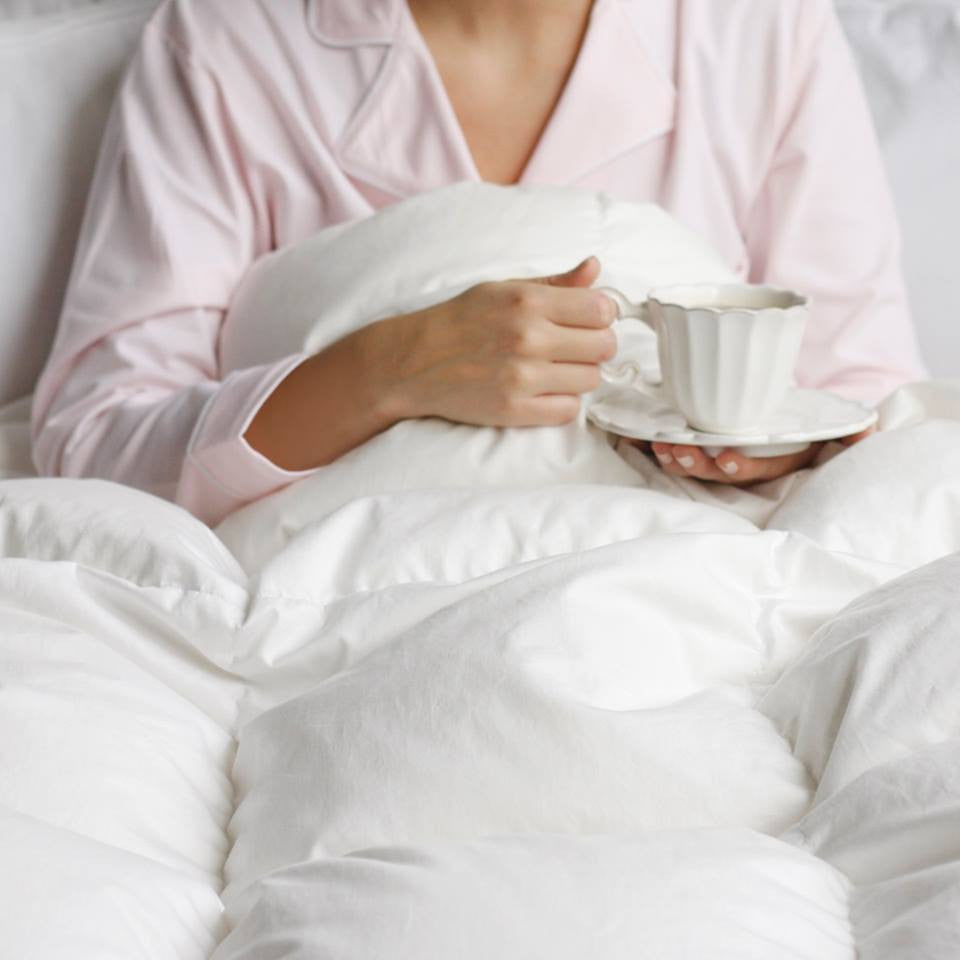
Times, they are a-changing. While it was once commonly accepted, even encouraged, to brag about functioning on a lack of sleep, science is now proving that lack of sleep can be as harmful to your health as sunbathing, excessive drinking, or even smoking. What you may not realize is that food is also a key component of good sleep health. To get the answers on the link between food and sleep, we sat down with Alyson Martinez, a Registered Dietitian. Here are her top three tips for improving your sleep via your diet.
1. Avoid caffeine and alcohol at least three hours prior to bedtime.
While it's common sense not to down a cup of joe too close to sleep time, Martinez warns that caffeine may be lurking in food and drinks that you might not have considered. Common culprits are soft drinks, energy drinks, non-herbal teas, chocolate, and many desserts (we're looking at you, tiramisu!). Consuming even small amounts of caffeine too close to bedtime can make it difficult to fall asleep, stay asleep, and can negatively impact your sleep quality.
She also advises to ditch the glass of vino or nightcap before bed. "Although alcohol makes it seem as though you're sleepy, it actually disrupts some neurotransmitters (like dopamine and serotonin) that regulate sleep, and can lead to poor quality of sleep." Her recommendation instead? Try a cup of rooibos tea before bed - and make sure not to have that chocolate chip cookie or brownie with it.
2. Enjoy a well-balanced, nutritious diet.
Martinez dispels the notion that certain foods are scientifically proven to improve sleep. "Studies have shown an association between overall nutritious eating habits to fall asleep easier", she posits. For optimal sleep, she recommends a following a diet high in fruits, vegetables, nuts, seeds, and vegetarian protein sources.
3. Try herbal teas.
One of the most frequent questions Martinez receives is regarding the link between herbal teas and sleep. While valerian root is the current tea du jour in aiding sleep, she also recommends chamomile and lemon balm. She also suggests tea made from the seeds from the Griffonia simplicfolia plant - found in the sleep supplement 5-HTP - may help, (although not studied extensively enough to say that they do, or don't, help with sleep).
"Most of these teas are low-risk, and if you find they improve your sleep, then go for it", Martinez recommends. "Just make sure they don't have any interactions with medications you're on, or that they aren't contraindicated if you're pregnant or breastfeeding."
Like this article? You may enjoy 5 Tips for Coping with Daylight Savings Time.




